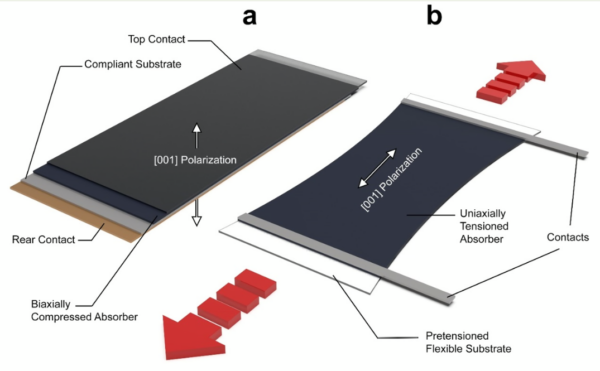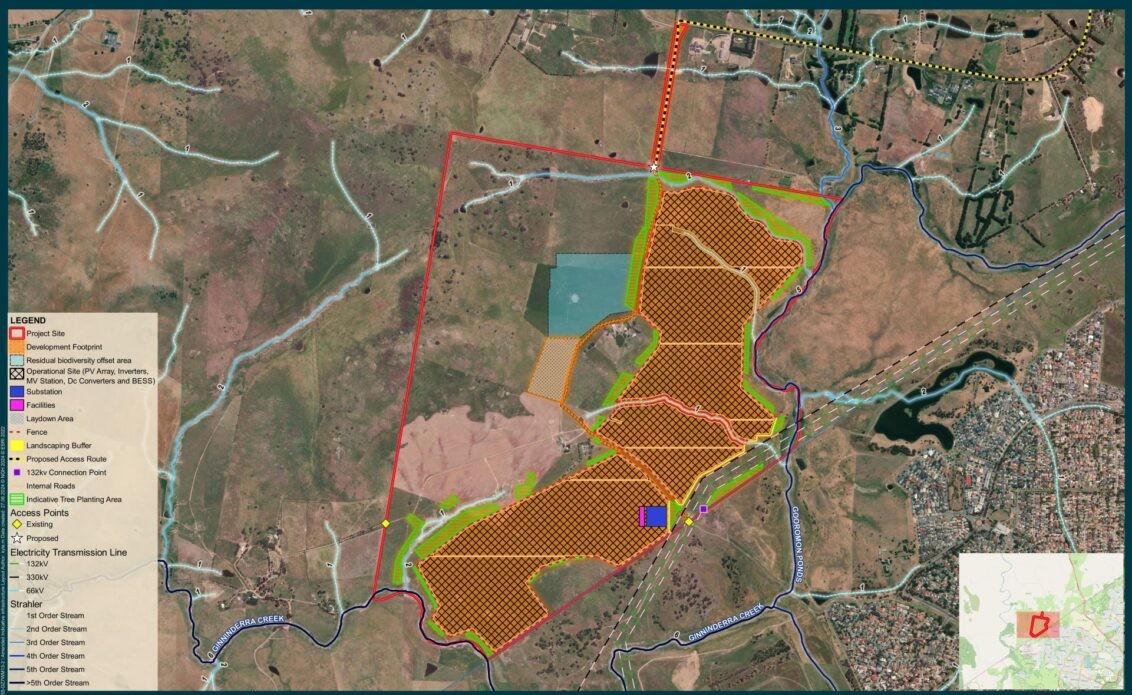Researchers from the Australian Centre for Advanced Photovoltaics (ACAP) and the University of New South Wales (UNSW) have published findings on the potential for next generation solar cells of chalcogenide pervoskite BaZrS3 (BZS).
Published in science journal Nature’s Communication Materials in December 2024, the Exotic ferroelectricity in strained BaZrS3 chalcogenide perovskite for photovoltaics paper highlights BZS for it’s stability, non-toxic composition, and light absorption properties.
It was the researcher’s use of the National Computational Infrastructure’s (NCIs) supercomputer, Gadi, that demonstrated BZS has weak ferroelectricity, but when strained, it gains exotic properities that can significantly enhance solar cell performance.
Using Gadi, a detailed computational anaylysis of BZS’s behaviour under different conditions was performed and revealed Rashba splitting, which reduces electron recombination and extends carrier lifetimes, large polarons, which shield charge carriers from defects improving mobility, and hot phonon bottleneck, which slows energy loss from excited carriers, boosting efficiency.

Image: Alireza Yaghubi
ACAP, School of Photovoltaic and Renewable Energy Engineering, UNSW Research Lead Alireza Yaghoubi said this level of precision would not have been possible with traditional experimental methods alone.
“Gadi’s ability to run complex models quickly and accurately has allowed us to test and refine hypotheses without the need for time-consuming and resource-intensive lab work.” This approach significantly accelerates the pace of discovery and brings us closer to the next generation of solar technologies,” Yaghoubi said.
The innovation has the potential to lead to highly efficient and sustainable solar energy solutions.
This content is protected by copyright and may not be reused. If you want to cooperate with us and would like to reuse some of our content, please contact: editors@pv-magazine.com.









By submitting this form you agree to pv magazine using your data for the purposes of publishing your comment.
Your personal data will only be disclosed or otherwise transmitted to third parties for the purposes of spam filtering or if this is necessary for technical maintenance of the website. Any other transfer to third parties will not take place unless this is justified on the basis of applicable data protection regulations or if pv magazine is legally obliged to do so.
You may revoke this consent at any time with effect for the future, in which case your personal data will be deleted immediately. Otherwise, your data will be deleted if pv magazine has processed your request or the purpose of data storage is fulfilled.
Further information on data privacy can be found in our Data Protection Policy.